Part 1. Meet my story and the education project I am part of!
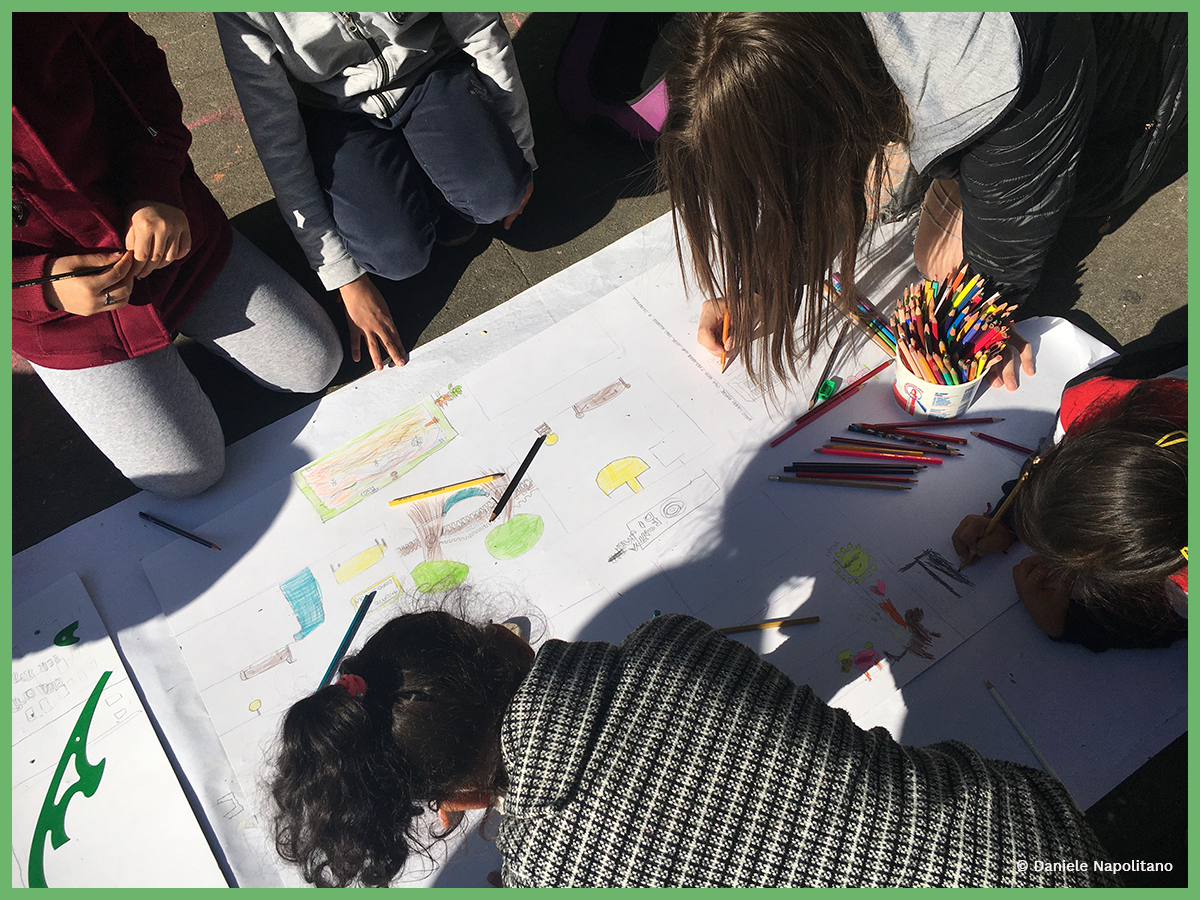
Hello everyone, today I want to tell you a bit about a beautiful project I am part of! Since last year, I am actively part of an initiative related to education and development, called “Doposcuola Quarticciolo”, in a socially disadvantaged context in the city of Rome (Italy), where together with a group of young people, we support children in their education. The initiative is part of a wider activist project related to the sustainable development of the community in the neighborhood of “Quarticciolo.”
Quarticciolo is located in the most eastern suburb of the city of Rome. It is a historical “borgata”, which means an informal settlement built after the fascist period where people were moved to live. The place has all the characteristics of a “popular” neighborhood, with problems related to the right to housing, social exclusion, low levels of cultural and social stimuluses, high levels of school drop-out, unemployment, and being pictured as criminal and overall negative in portrayals by the media.
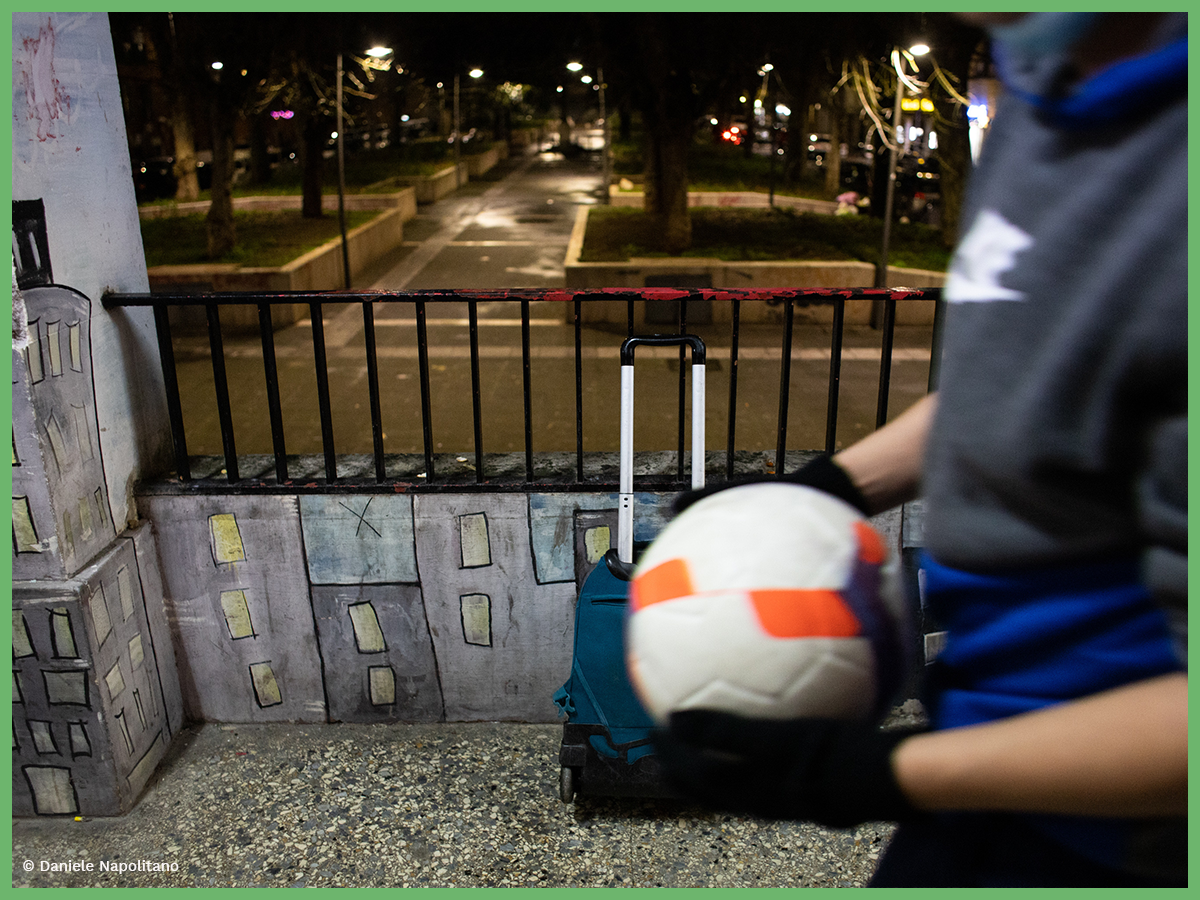
Since 2015, a group of young university students decided to intervene in Quarticciolo and to establish relationships with people living there. They built a social gymnasium called “Palestra Popolare Quarticciolo” where they teach boxing, in order to take youngsters away from the streets, to support them through sport values, and to infuse a sense of discipline, responsibility and inclusion. They also work with the inhabitants for the right to adequate housing. This was and still is one of the major challenges and problems that people living in the neighborhood face: water inside houses, 27 square meters of living space for families of up to 7 people, mold everywhere, and overall unsustainable living conditions.
In relation to education, three years ago two of these young university students decided to give homework support to the kids of the neighborhood. They recognized children left school at an early age, often after completing only lower secondary education while living in very difficult circumstances at home, which did not support a proper climate to study or learn. After establishing trusting relationships with children and their families, they started to informally provide school support and some recreational activities. It was challenging but necessary, and the project, named “Doposcuola Quarticciolo”, which means “Afterschool Quarticciolo,” took its very first steps.
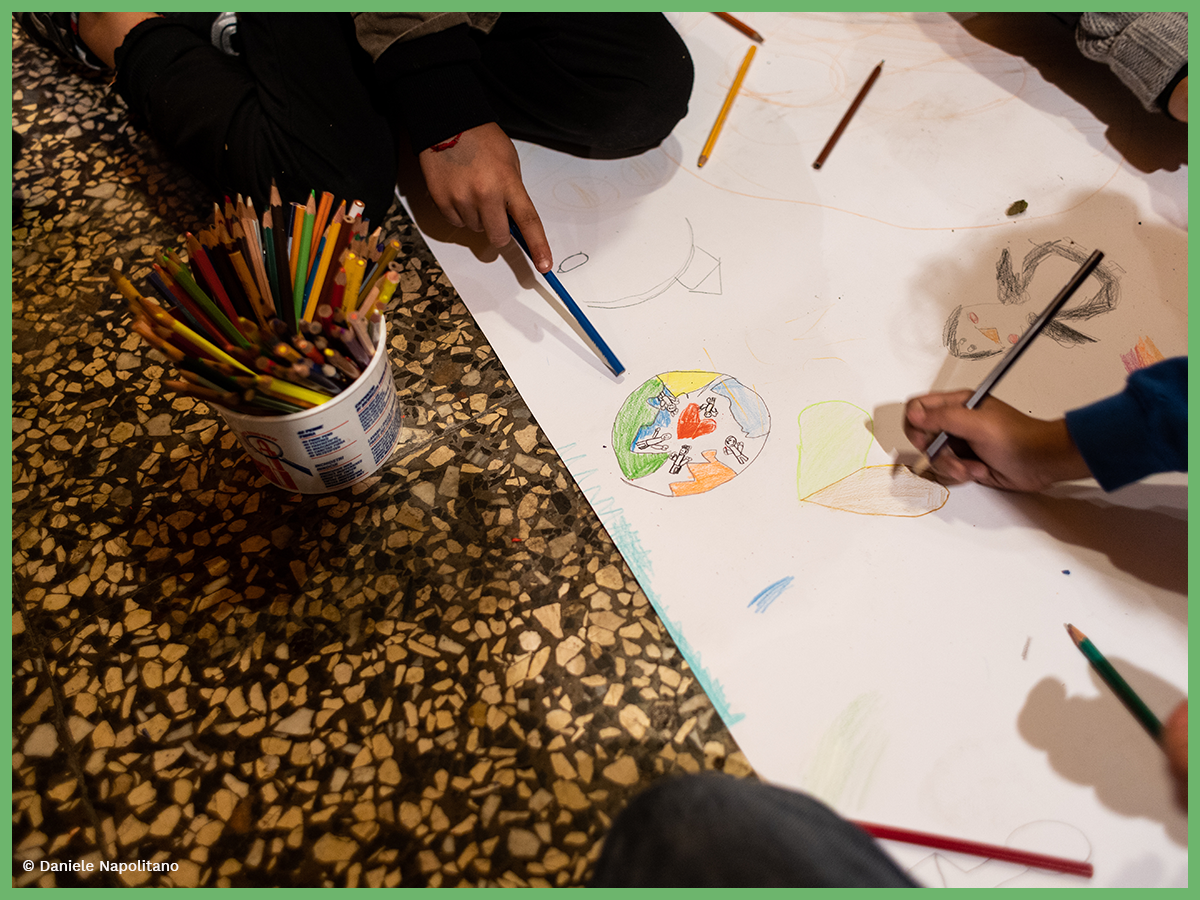
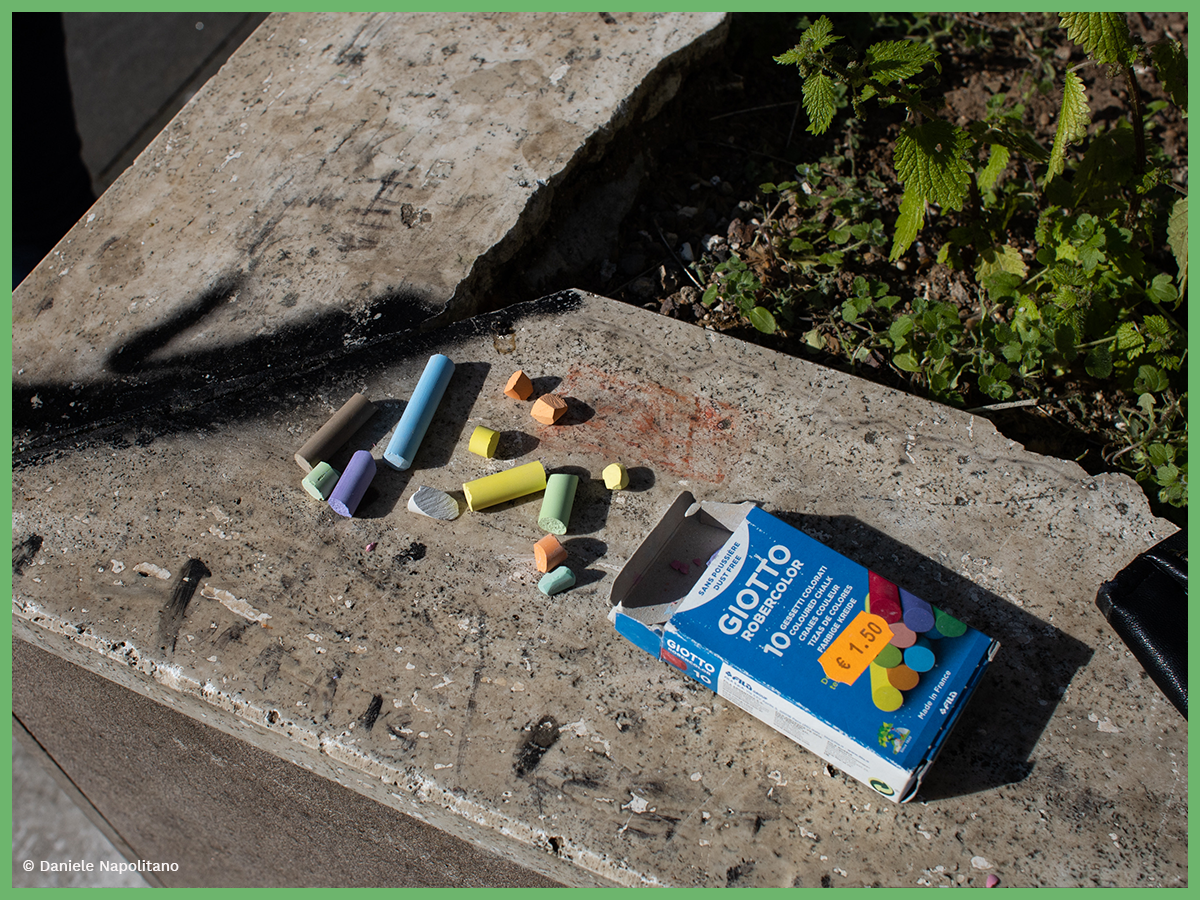
The explosion of the covid-19 pandemic has massively affected those living in such precarious conditions. It has already become clear that the pandemic has made visible and exacerbated existing social and economic inequalities. Children living in small houses and in poor economic income and family conditions often do not have an adequate Internet connection or technological devices, and as a consequence, they commonly lost motivation. Especially those most in need were often left at the margins of society. It speaks for itself that this is not what is considered to be equal access to quality education.
It was during the summer of 2020 that I felt I had to contribute to what was considered to be the major educational crisis of the pandemic: kids losing the right and the access to learn. After coming back to my hometown (Rome) and through a friend, I got to know the initiative and the people that were part of it. I started to collaborate, initially only by looking at what was going on. They told me that kids did not attend school at all during the first pandemic restrictions and that this has been a severe loss for them. Lack of attention and motivation and a lack of proper connection and devices were only some of the barriers they faced. Some children had started primary school and should have learned how to read and write; for them, this period was the most challenging socially and learning-wise. During that summer we tried some outdoor readings at the park, in order to keep them stimulated, as well as light games and artistic activities. It was hard. Children had lost months during the pandemic, but in their learning process, this counted as years. This included attention problems, disengagement, reading and writing difficulties, and the need to socialize and to enjoy their right to simply being children. We felt this was a time they were in major need of support.
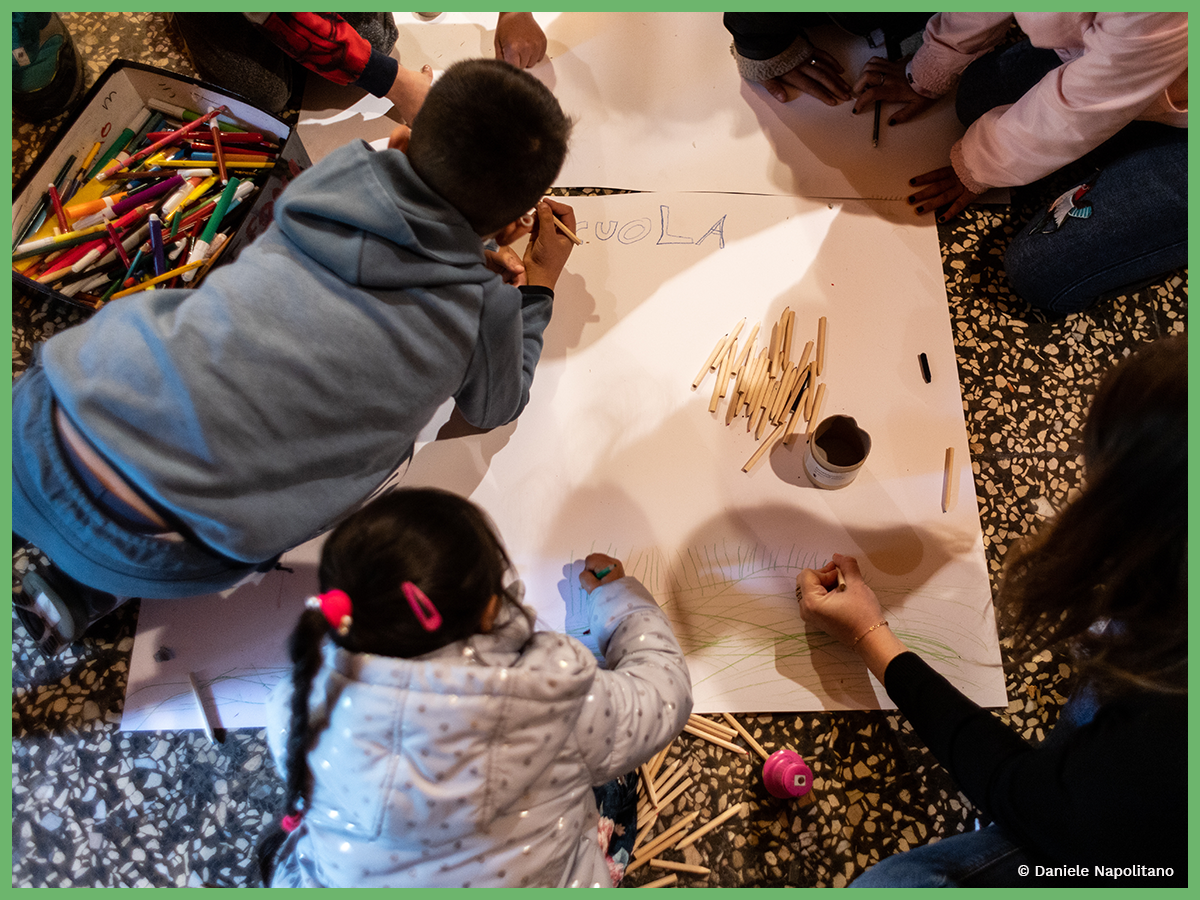
The bottom-up project of the “Doposcuola Quarticciolo” has been growing ever since. We have grown as a group and the kids who were initially very few due to the pandemic disinterest have also been growing in number. After a hard year of work where we never stopped our activities, we are now currently developing a network and are establishing collaborations with other actors of the territory as well as the outside community, such as other associations, schools, and foundations in order to apply for funding and to work together, towards a more equitable and just education and development for all children.
… But about all this, I will talk in my next posts!
Follow my story, to know more about who we are as a group, how we auto-organize ourselves collectively, mobilize and take political action, about some of the activities that we do and plan with the kids and the other members of the community, and some of the strengths and challenges we face!

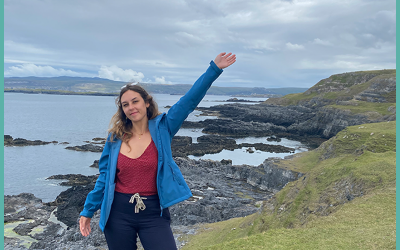
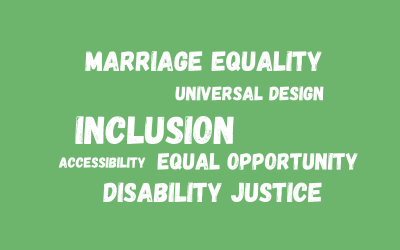
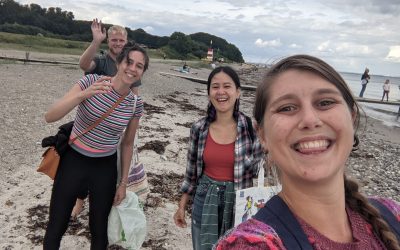

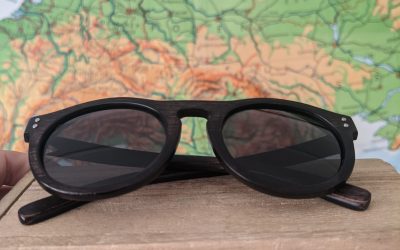



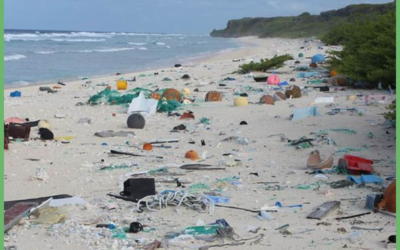
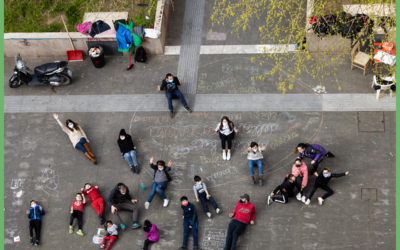

0 Comments